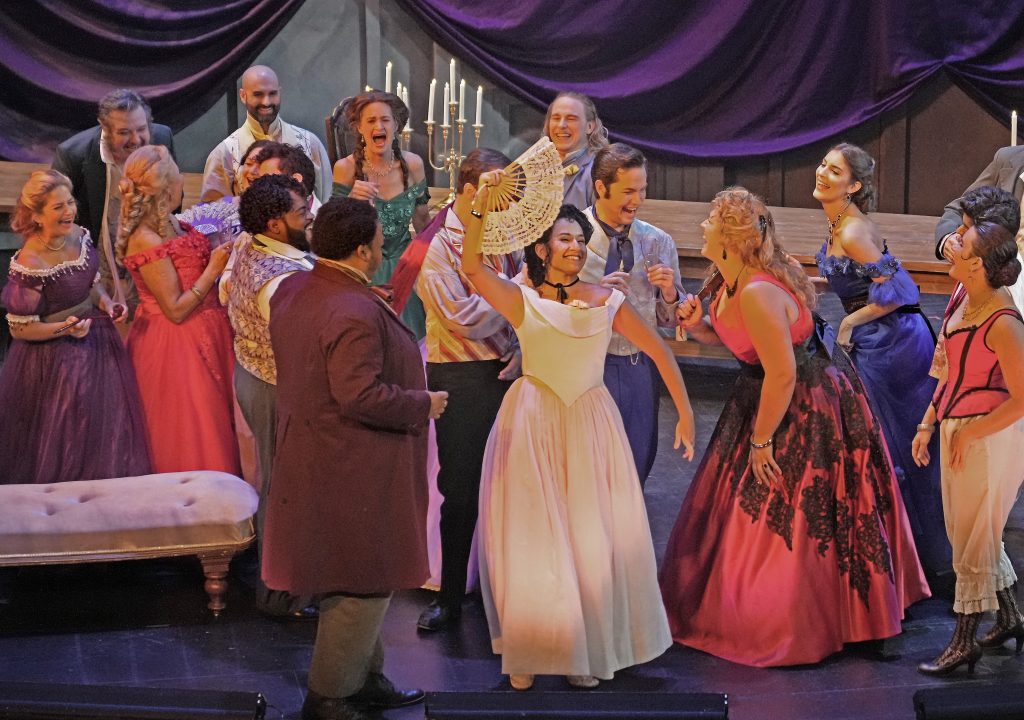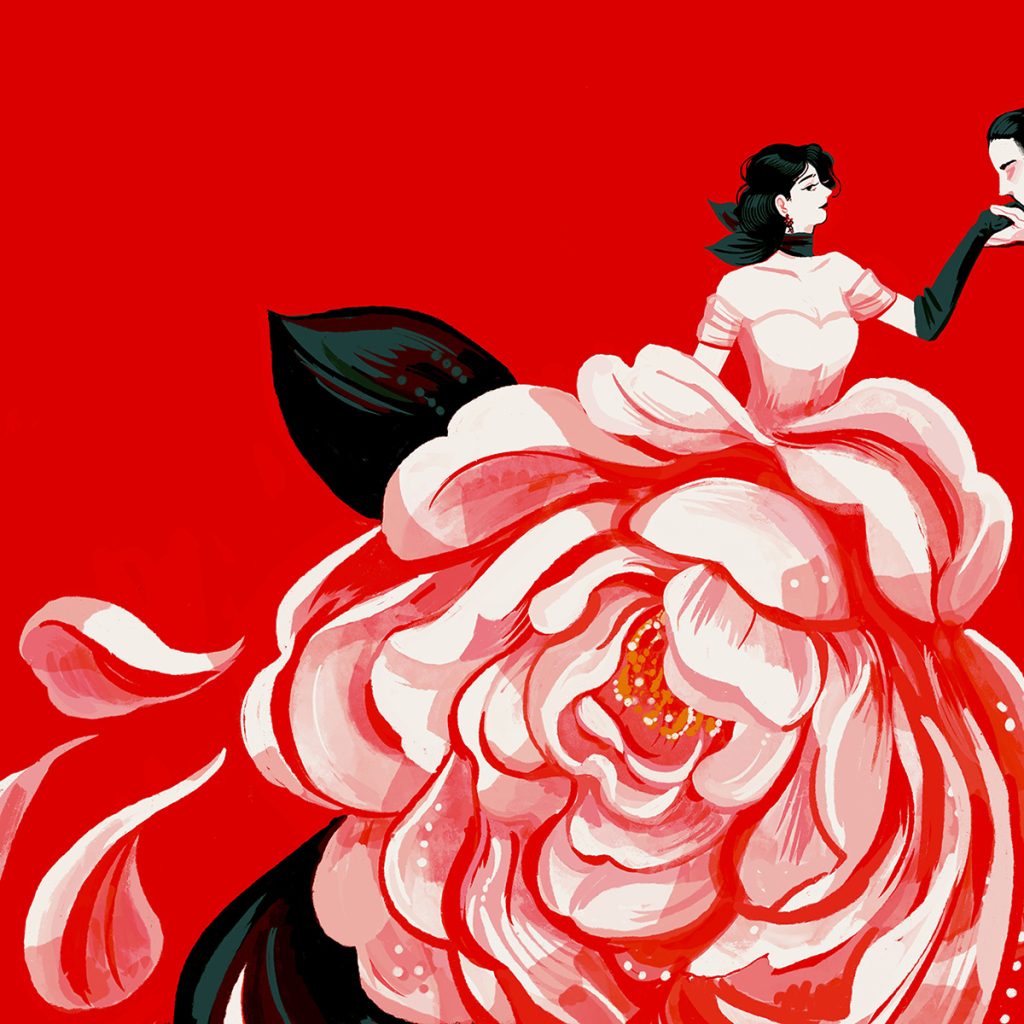
by Kevin T McEneaney
The good news is that the Berkshire Opera Festival is in its vigorous tenth year of bringing quality opera to the Mahaiwe venue in Great Barrington. Now playing is Giuseppe Verdi’s La Traviata, his most popular opera in productions and recordings. Verdi is the adroit master of emotional expression and intimate passion that feels spontaneous as words are wedded to the music. This current production lives up to the opera’s reputation of longevity. You don’t have to travel to Manhattan to enjoy opera. This coming Friday evening is the last performance date.
This opera is at the apex of the bel canto tradition before the swerve to symphonic opera. Passionate sincerity is the heartbeat of this romantic opera, especially in the character of good-hearted (yet imperfect) Alfredo Germont, marvelously sung by tenor Joshua Blue with resonant aplomb, righteous anger, and oceanic love.
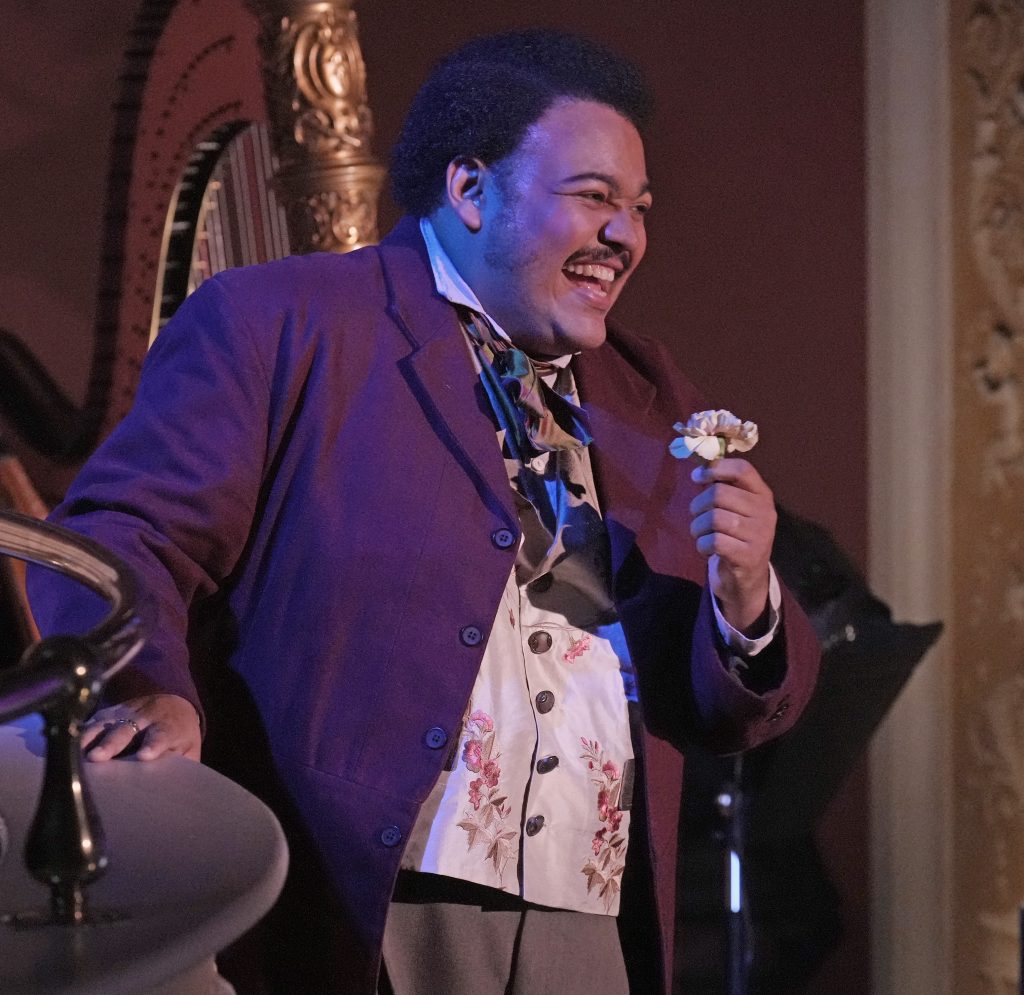
Violetta Valéry, the woman Alfredo loves, loves him, but she faces the awkward situation of Alfredo’s father’s desire to break up their relationship. Soprano Vanessa Becerra as Violetta delivers incandescent confusion and frustration. The tormented gymnastic postures from which Vanessa Becerra manages to sing in the third act were an astonishing spectacle as she projected her voice to describe her failing health. The focus on the pain and vulnerability of Violetta evokes unlimited empathy on the part of the audience.
Alfredo’s father, Giorgio, baritone Weston Hurt, delivers a gravity and dignity that make his errant advice believable. Giorgio represents the old order that the Romantic Revolution condemned as irrational morality in refined drawing rooms. The sensational exploitation of errant morality was effectively highlighted by Romantic artists as tragic imbecility. The prospect of social customs defeating love was abhorrent to the Romantics.
Violetta’s friend Flora Bervoix, sung by mezzo-soprano Erin Reppenhagen, underlined the fragility of Violetta’s vulnerability with self-effacing grace. Baron Douphol, played by baritone Yazid Gray, is convincing as the insensitive antagonist vying for Violetta’s love.
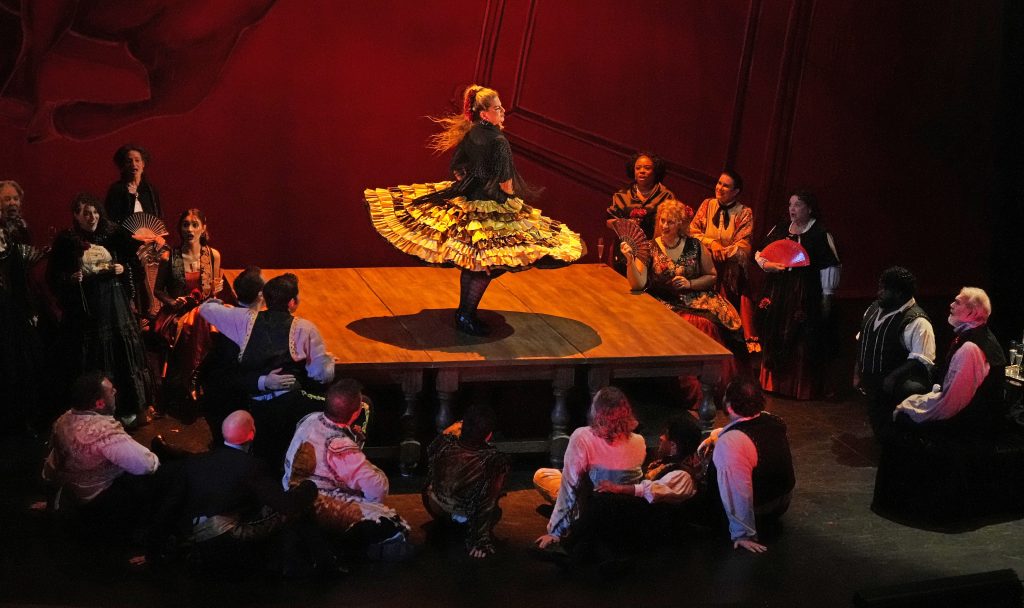
Dancer Glenda Sol Koeraus performs a gypsy solo dance on a giant wooden tabletop with vigorous, echoing panache.
In the pit, beneath the energetic spectacle onstage, is the engine that drives this empathetic tragedy: the large orchestra under the baton of Brian Garman. The orchestra performed with tight, practiced unity and bubbling effervescence. Verdi possessed a jaunty grab-bag of delightful melodies that remain remarkably memorable. The pathetic minor harmonies in the opening prelude with divided violins appear once more at the beginning of Act III with haunting execution. Some of the happy musical themes do repeat, with salient pleasure. The percussionist performed with immaculate timing, sending shivers of excitement through bones and veins.
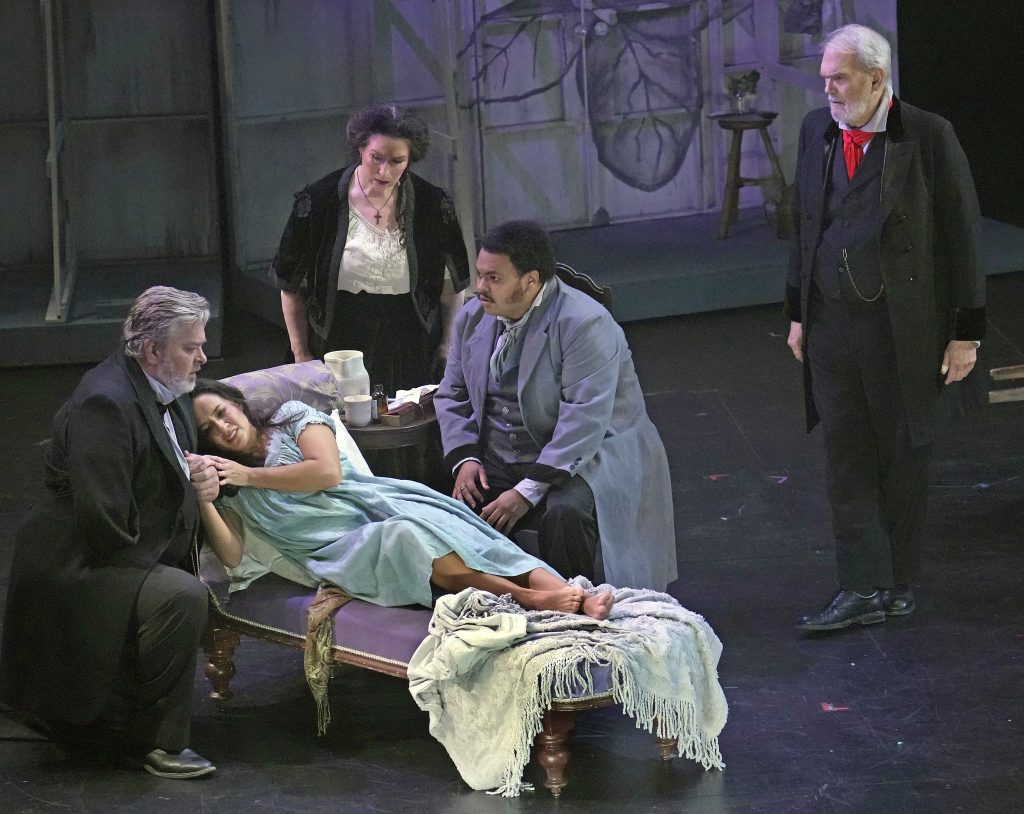
My one complaint is the substitution of a modern chorus composition in Act III for the traditional Dies Irae, which always sends chills down my spine.
At the conclusion, Violetta aspires to feel stronger. The music spins dizzily, and as she struggles to stand up, she falls dead into the arms of Alfredo. The audience’s applause was quite lengthy, while the bows of the singers and actors were even more appreciative of the remarkable entertainment they had just heard and witnessed!
All photos are by Ken Howard.
